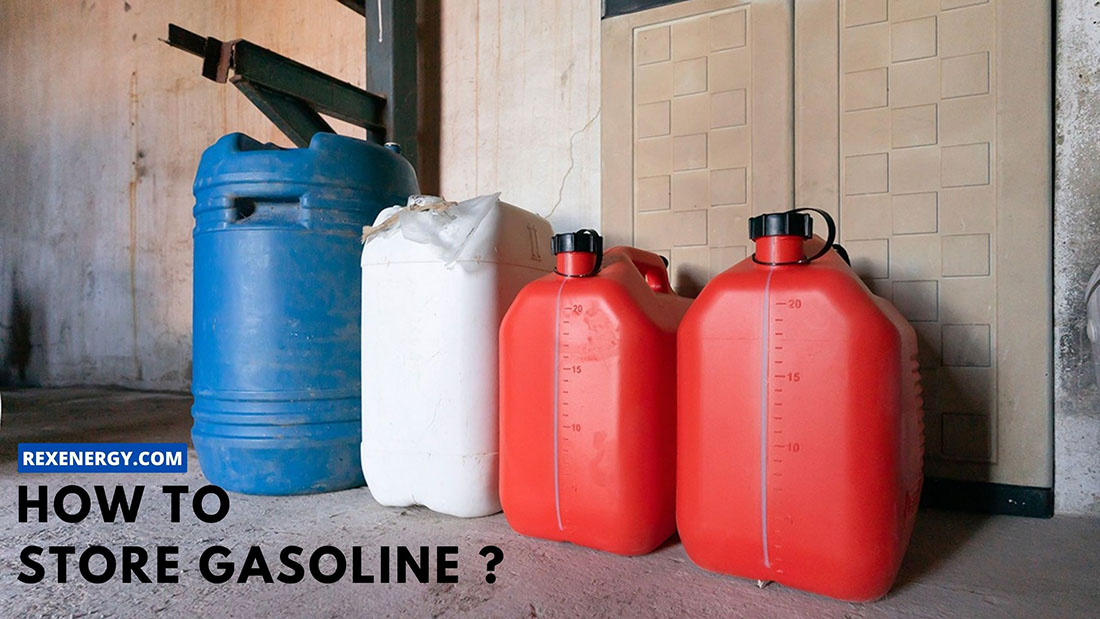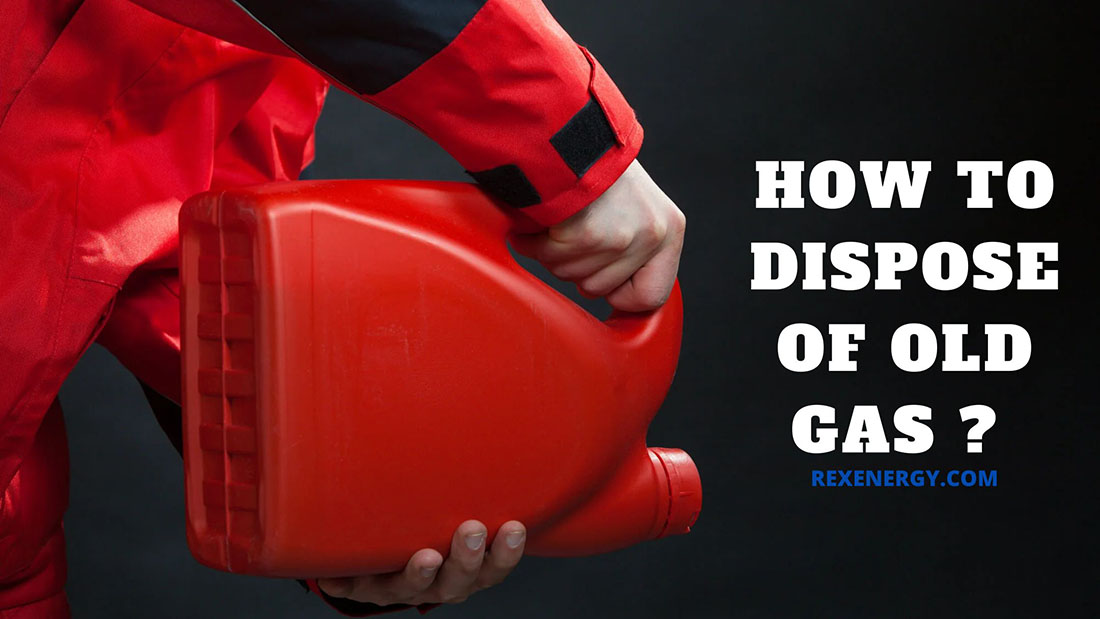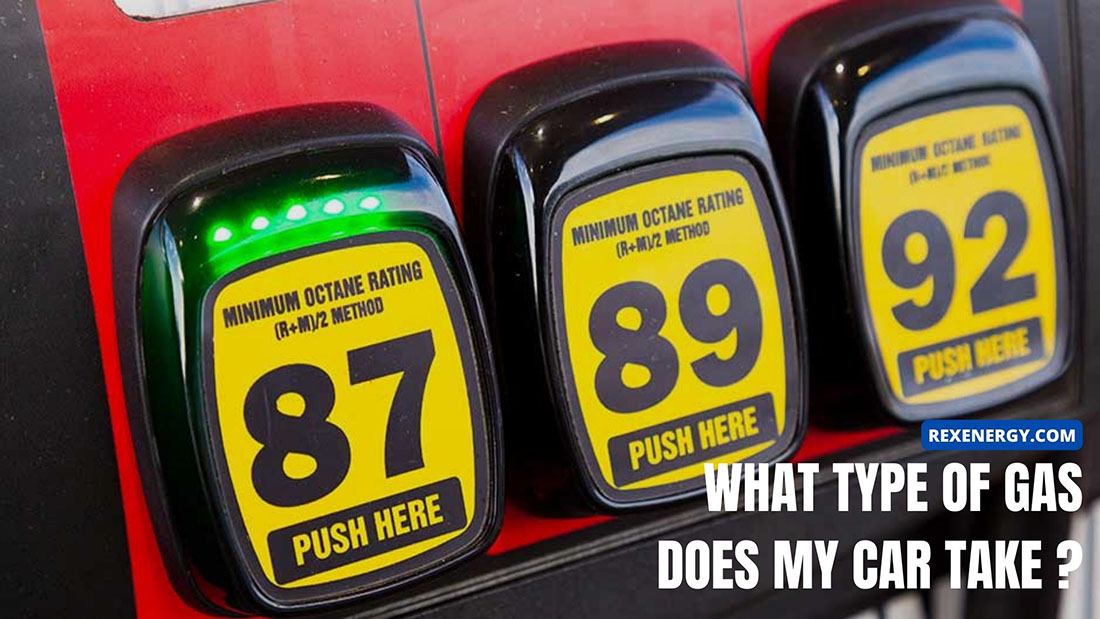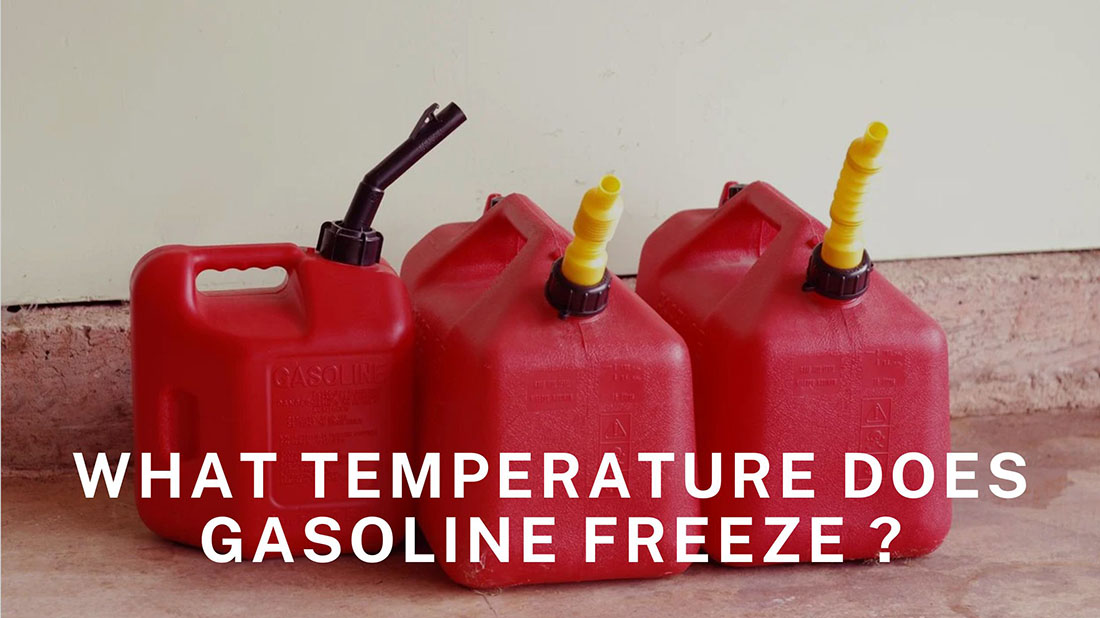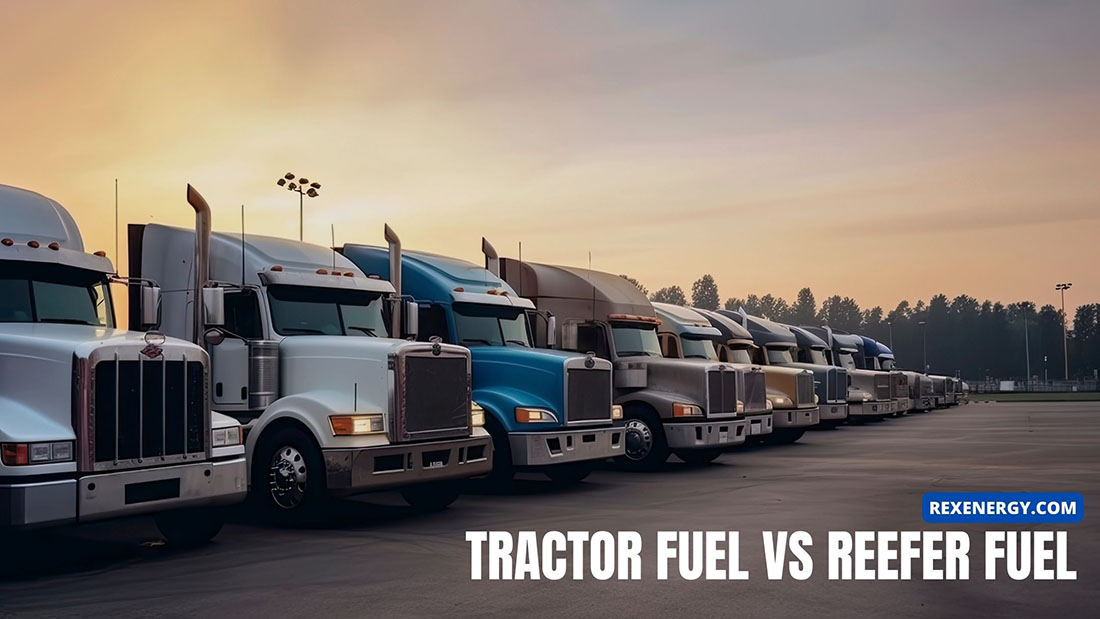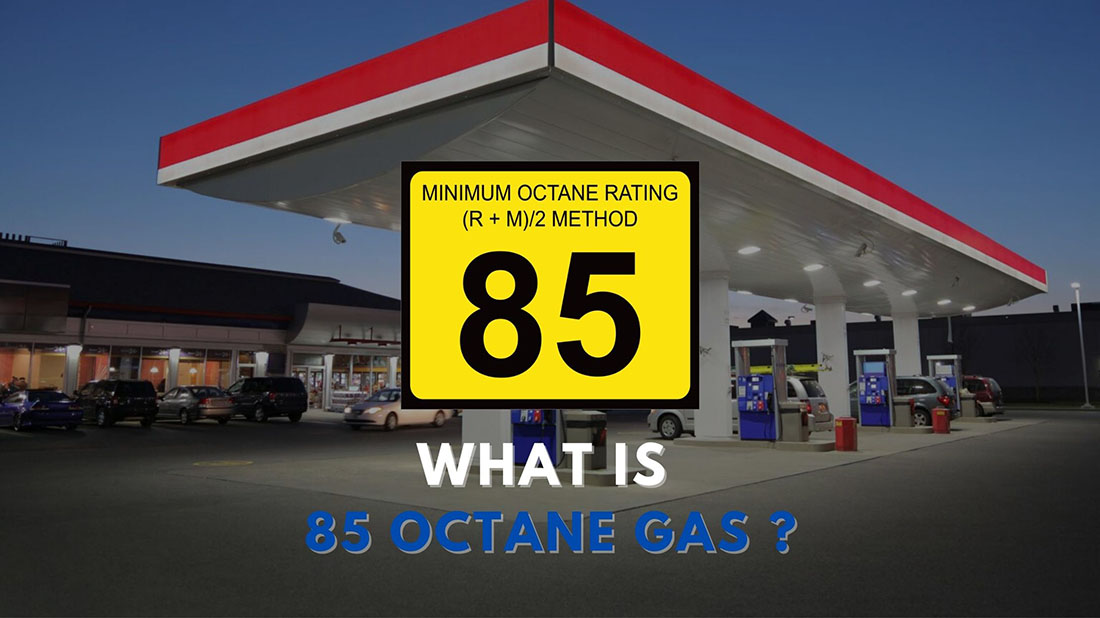Though gasoline is one of the most popular and widely used fuel sources, it might bring numerous risks of accidents and injuries to your family if not stored properly. Safe usage aside, you should invest as much time and effort in its storage to ensure long-term safety.
Keep scrolling to learn more tips
6 Ways to Store Gasoline Safely
You can put the gasoline in an approved container (remember not to top it off) and place it in a cool, dry place far from your home. Keep one or two fire extinguishers nearby for quick response in case of a fire.
1. Use A Safe, Approved Gas Container
You should only store the gasoline in a safe container approved by the DOT (Department of Transportation), meaning there should be a logo or the DOT mark on the can.
Also, these containers are usually made of solid, durable material (typically sturdy plastic) and categorized into different colors based on the liquid type. The meaning of each color is as follows:
- Red: The most popular color and associated with regular gas. Red cans should only store pure gas, not yet mixed with other substances.
- Yellow: Diesel fuel used for large machinery or vehicles like trucks.
- Blue: Kerosene, a flammable fuel often found in small lamps and cooking stoves. Some also use Kerosene to power aircraft.
- Green: Mixed fuels (e.g., oil and gasoline) that are highly flammable, common in lawn equipment.
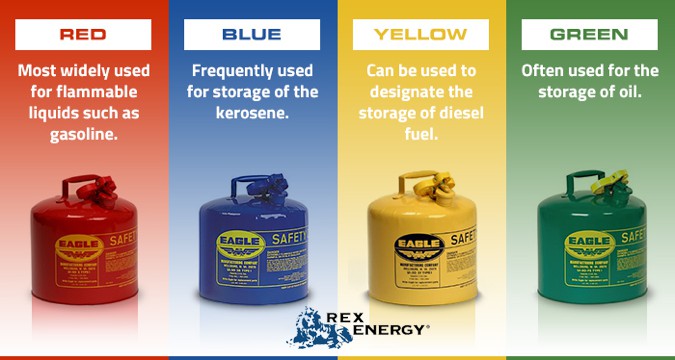
Do not store fuel in containers not designed for such purposes – such as everyday vessels, canteens, or milk jugs. These containers are not well-built and will easily leak and spill. Worse, gas also expands when warmed up, further increasing the risk of overflow.
2. Put The Gas Somewhere Safe
Choosing the right container is only a small part of the bigger picture; after that, you must store the gasoline and combustible liquid in a well-ventilated area far from any electricity or heat source. Cases in point are a dry, cool corner around locked buildings (far from local people) or a detached shed or garage.
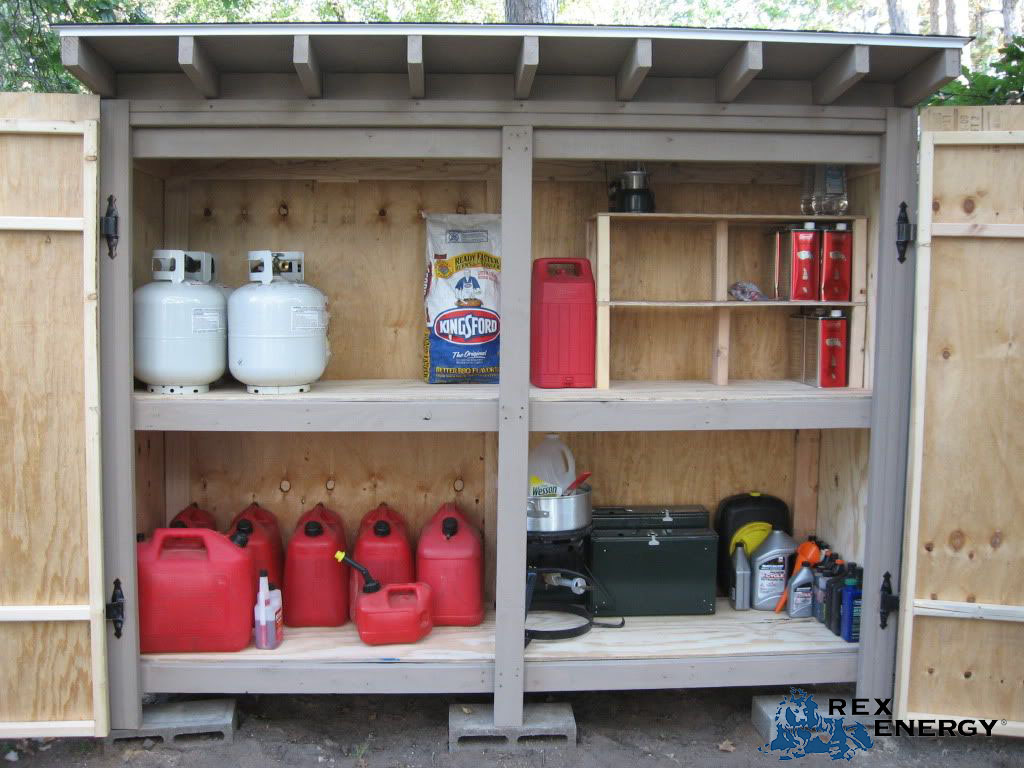
It would be best not to keep it indoors; gas vapors and leakages are to be expected if the container is not properly sealed. Do not forget about fires and explosion risks, either, since gasoline is highly flammable.
How about storing gas cans outside? While this option is acceptable, you must still ensure the gasoline is kept from environmental factors like rain or extra heat. Only a small crack in the container will allow water to seep through and ruin the gas inside; likewise, the fuel inside the tank might escape and threaten its surrounding environment.
3. Do Not Keep The Gas In The Tank of Your Home Generator
Some households keep a backup generator as an extra source during sudden power outages. If that is your case, never store gasoline in the generator’s tank. Putting the gasoline in the same location where the generator operates is also not recommended.
Why? Gas usually breaks down much faster than expected; worse, it might destroy all the tank’s internal parts when the generator has been left unused for too long.
Instead, we suggest storing it in a certified receptacle. Only add more gasoline to the generator when necessary.
4. Double-Check the Insurance Policy and Local Laws
Gasoline is a common yet highly dangerous combustible substance, so many cities have strict regulations regarding gas storage.
Most only allow their citizens to store a certain amount of gasoline without special permits; for example, the maximum amount of gas you can stockpile in New York City is 2.5 gallons (according to Slate). So, do not forget to double-check the fire codes in your neighborhood to confirm the local limit for safe storage.
Also, scan through the insurance policies: some might limit how much gas you can keep near your property. Plus, they only offer limited coverage for a certain amount of gas or specific situations. Suppose you stored more than 100 gallons in the garage and ended up having your property burnt down; then, this damage will not be covered.
5. Do Not Fill The Gas To The Brim Of The Storage Container
As gasoline will expand when heated, you should leave some space in the can for this expansion; only fill up to 80 or 90% of the total volume.
Some gas cans might have a marked line down from the top; remember to only fill up to this line.
6. Keep Fire Extinguishers Around The Storage Area
In the off chance of a fire, a nearby fire extinguisher will help you handle it quickly. So always keep one around the storage area, and ensure you have read the instructions properly.
How Long Can You Store Gasoline At Home?
After about 3-6 months, pure gas will become oxidized and evaporate quickly, especially when stored in a tightly sealed plastic or metal container.
Ethanol-gasoline has an even shorter shelf life, only a couple of months. Meanwhile, for people using fuel-stabilized gasoline, the shelf life will fall between 1 and 3 years based on the storage conditions.
Can You Store Gas in Your Garage in Winter?
Yes, you can still store your gasoline in winter. However, ensure the place is well-ventilated, cool, dry, and as far away from your house as possible.
Also, do not let your children and pets wander around the storage area; the risk of danger in those cases will be unimaginable.
Conclusion
Gasoline is dangerous and could even destroy your entire house if not stored properly.
Keep in mind our safety tips above, and feel free to consult your local authorities for more help. Most importantly, do not let your curious pets and children get close to the storage site!

